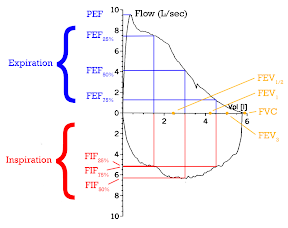 Little research has been devoted to the characteristics of bronchial inflammation in patients with stable, well-controlled asthma. The aim of this study was to assess the airway inflammation and bronchial hyperresponsiveness in well controlled asthma in 84 adult patients (mean age 43 years).
Little research has been devoted to the characteristics of bronchial inflammation in patients with stable, well-controlled asthma. The aim of this study was to assess the airway inflammation and bronchial hyperresponsiveness in well controlled asthma in 84 adult patients (mean age 43 years).59 patients had persistent bronchial inflammation: 28 cases were considered eosinophilic, 28 neutrophilic. A positive correlation was found between eosinophil percentage and the methacholine response. The study authors concluded that inflammation and bronchial hyperresponsiveness persist in most patients with well-controlled asthma.
It is interesting to notice that less than 50% of the patients had eosinophilic inflammation. This fidning may limit the usefulness of FeNO monitoring devices for asthma evaluation and follow-up because they detect FeNO which is produced by eosinophilic inflammation. Patients with neutrophilic inflammation may not have elevated FeNO levels and could be misclassified as having controlled asthma (or no asthma at all) if significant emphasis is placed on FeNO assessment.
References:
Bronchial Inflammation And Hyperresponsiveness In Well-Controlled Asthma. X Muñoz et al. Clinical & Experimental Allergy, 2012, DOI: 10.1111/j.1365-2222.2012.04004.x
Image source: Spirometry, from Wikipedia, the free encyclopedia, GNU Free Documentation License.